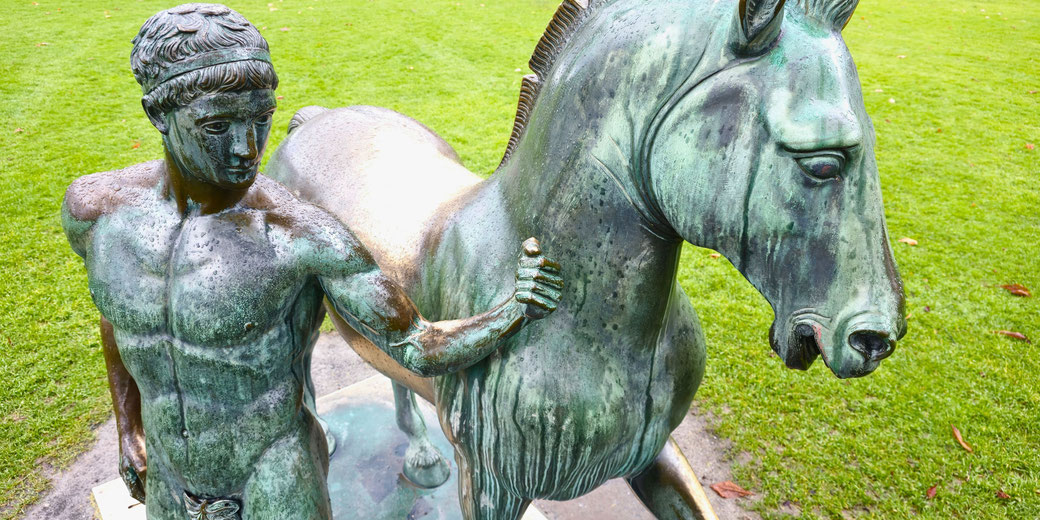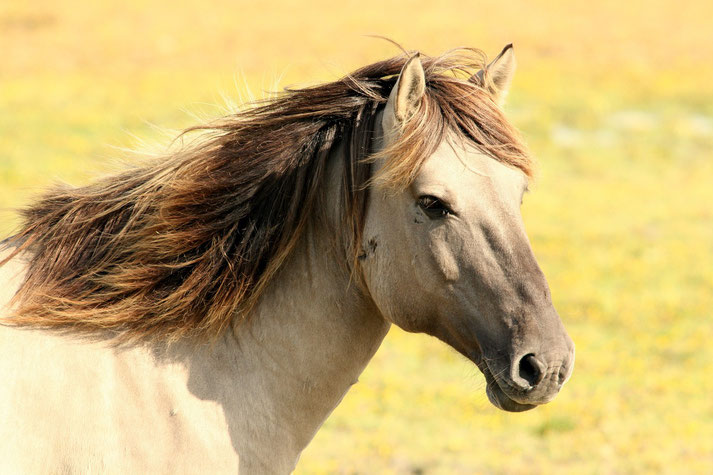Bucephalus: the true story of Alexander the Great's legendary horse

When the young Alexander the Great was barely a teenager, he was faced with a test that tested his own courage. A wild stallion named Bucephalus had outsmarted every rider until Alexander worked out how to turn its fear into his greatest strength.
It would create a partnership between a boy and a horse that would take them both from Macedon to India in one of the greatest adventure stories the world has ever seen.
How Alexander met Bucephalus
During the mid-340s BCE, a Thessalian nobleman named Philonicus brought Bucephalus to the Macedonian court with the intention of selling him to King Philip II.
In front of the gathered nobles, the horse appeared tall, muscular, and restless, but each attempt to ride him ended in failure.
As a result, he was thought to be too dangerous and hard to handle. Some later accounts described Bucephalus as a dark-coated stallion with a wide forehead that inspired the name "Bucephalus," meaning "ox-head" in Greek.
After watching several handlers give up, Philip ordered that the animal be taken away.
At that moment, Alexander, who was no older than thirteen, stepped forward and claimed that the horse’s reaction came from poor treatment rather than disobedience.
According to Plutarch’s account, Alexander argued that the men had strength but needed understanding.
He then asked permission to attempt the task himself. With a smile, Philip let his son try but warned him that failure would mean paying for the full cost of the horse.
With calm movements and quiet words, Alexander approached Bucephalus.
Instead of grabbing the reins and forcing his control, he studied the horse’s behaviour and noticed that Bucephalus seemed nervous whenever his own shadow passed across the ground.
When Alexander turned the animal toward the sun, he removed its shadow from view and allowed the horse to settle.
In front of the court, he mounted Bucephalus and guided him in a slow circle. Then, gaining confidence, he pushed him into a gallop.
The crowd cheered loudly. Philip, now visibly moved, embraced his son and told him, "My son, seek a kingdom equal to yourself. Macedon is too small for you."

Actions in battle
Throughout the early years of Alexander’s campaigns, Bucephalus remained a constant companion, especially in some of the most dangerous moments on the battlefield.
In 334 BCE, as the Macedonian army prepared to cross into Asia Minor, the horse accompanied his master from the Hellespont to the battlefields of the Persian frontier.
At the Battle of the Granicus, Alexander led a direct cavalry assault across a river swollen with spring runoff.
The Persian forces waited on higher ground, and their archers stood ready to fire.
Rather than hesitate, Alexander continued the attack, using Bucephalus to break the line and create panic in the enemy lines.
In later engagements, Bucephalus helped Alexander outsmart rival commanders in both city sieges and open-field battles.
During the campaign in Phrygia, for example, Bucephalus allowed Alexander to make quick movements along narrow ridgelines while his infantry advanced behind him.
At Gaugamela in 331 BCE, Bucephalus once again carried Alexander into the most dangerous part of the battlefield.
Persian chariots created confusion among the Macedonian ranks, but the noise, dust and panic of a large-scale cavalry engagement failed to stop Bucephalus.
Before launching the final assault, Alexander reportedly rode along the line to encourage his troops.
The following attack of Alexander’s on the right flank forced Darius III into retreat and achieved a resounding victory for the Macedonians.
How did Bucephalus die?
After the Battle of the Hydaspes in 326 BCE, Bucephalus died in the Punjab region of India.
The Macedonian army had march for weeks in unfamiliar terrain in heavy rains that turned the ground to mud.
Bucephalus, by this time nearly thirty years old, had already survived more than a decade of warfare.
At Hydaspes, Alexanderhad used Bucephalus in a dangerous river crossing designed to outflank the enemy.
The horse led a force of cavalry across slippery banks and helped deliver a crushing blow to King Porus’s forces.
After the battle, which ended in Macedonian victory, Bucephalus collapsed. Some ancient sources said his wounds from battle caused it.
Others thought tiredness, age, and stress caused his death. Some modern historians have suggested that Bucephalus survived the battle but was taken out of service soon after.
Regardless of the exact cause of his death, Alexander ordered a city to be founded in Bucephalus’s memory.
Near the battlefield, he established Bucephala. Its likely location near modern-day Jhelum in Pakistan, based on archaeological and scholarly analysis.
In doing so, he had honoured the animal that had carried him across thousands of kilometres, from Macedon to the Indian subcontinent.
Few commanders in history gave such an honour to a horse.
What do you need help with?
Download ready-to-use digital learning resources
Copyright © History Skills 2014-2025.
Contact via email
With the exception of links to external sites, some historical sources and extracts from specific publications, all content on this website is copyrighted by History Skills. This content may not be copied, republished or redistributed without written permission from the website creator. Please use the Contact page to obtain relevant permission.





